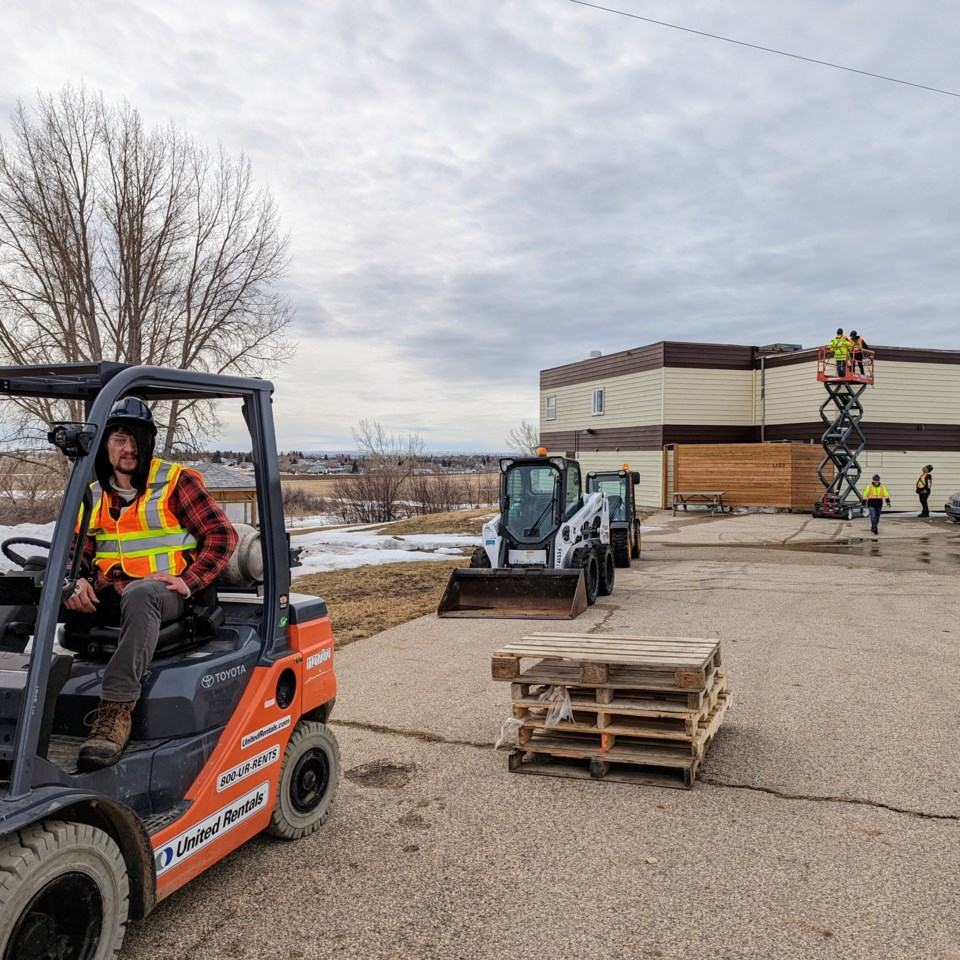Dumont Technical Institute (DTI) conducted a multisector ticket training course at the New Southern Plains Métis Local #160’s Lakeview Centre to give members greater employability.
Métis Local 160 president Darrell Hawman said the course “prepares individuals to go into the workforce, and they will be leaving with personal protection equipment, boots, and all the certificates you need to go right into any of the work in mining, oil fields, and construction.”
Daniel Downs, the DTI program coordinator, explained that DTI is the adult basic education and technical skills training arm of the Gabriel Dumont Institute of Native Studies and Applied Research.
The Gabriel Dumont Institute receives funding from the provincial government along with Saskatchewan Polytechnic and the Saskatchewan Indian Institute of Technologies.
“DTI provides quality educational opportunities and services to Métis people in Saskatchewan,” Downs said. “DTI develops courses that are deemed essential for Métis self-determination and the development of strong, independent individuals living and working in Saskatchewan communities.”
The course ran from March 4 to March 19 at Lakeview Centre, which is operated by Métis Local 160.
Rob Lapp with Armour Safety taught the Powered Mobile Equipment portion of the course. He covered Saskatchewan occupational health and safety regulations surrounding equipment such as scissor lifts, forklifts, and boom lifts.
“The characteristics of the equipment, the design, its purpose, its ratings, knowing how it works,” Lapp explained. “So really getting out the operator’s manual… and then we evaluate them, (see if) they demonstrate adequate knowledge and ability to operate it safely. Kind of a general start.”
Other training sections of the course covered things like standard first aid, CPR, fall protection, fire extinguishers, asbestos awareness, general mine safety, and WHMIS.
Downs said that DTI conducts a yearly assessment to see what each community needs in terms of training, and then how to prioritize which communities to train first.
“Moose Jaw was determined to be a priority area for safety ticket training based on the current social and economic needs of the community,” Downs said.
The current multi-sectoral safety ticket program was designed in collaboration with Hawman to benefit and meet the training and employment needs of the Métis people of Moose Jaw and the surrounding area.
The program was free through funding from the Gabriel Dumont Institute. A daily lunch was provided by the New Southern Plains Métis Local 160.
“As always,” Downs said, “the goal of any DTI program (especially those with stakeholder collaboration) is to promote the renewal and development of Métis people through training that leads to employment. While DTI cannot directly impact regional economic activities, we can help ensure that Métis people are at the forefront in terms of skills and credentials to allow them to take advantage of employment and economic opportunities.”




